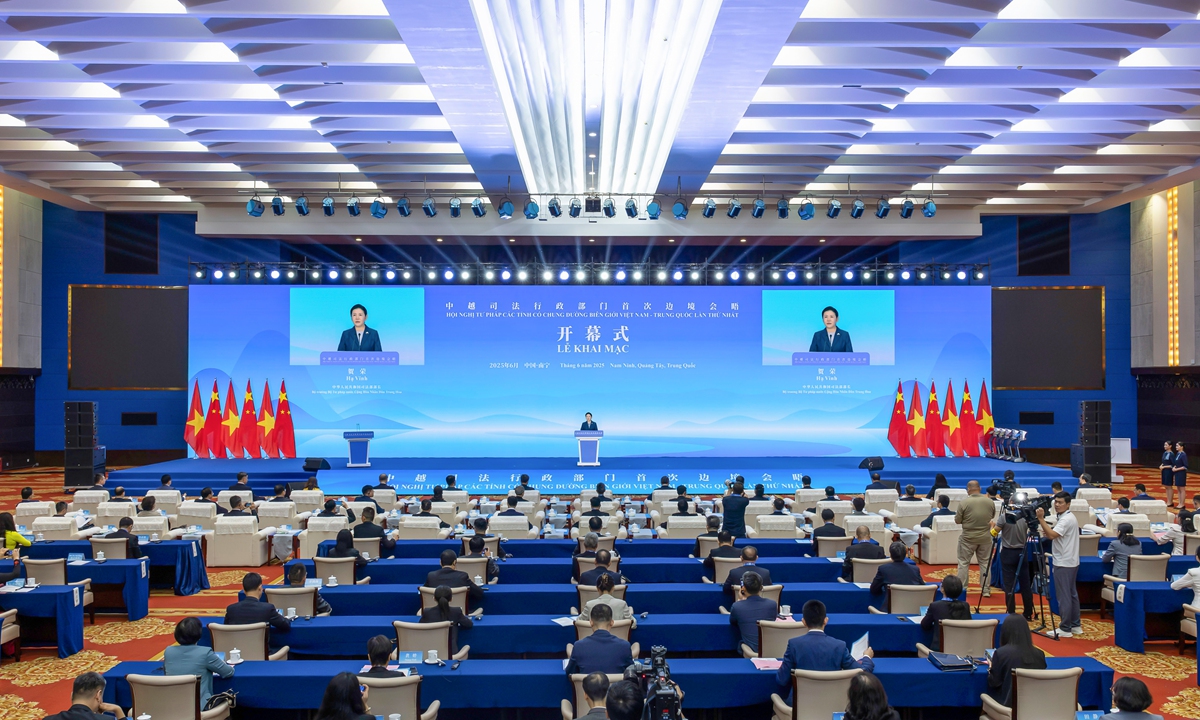
A meeting between Chinese and Vietnamese judicial authorities held in Nanning, South China's Guangxi Zhuang Autonomous Region from June 28-29, 2025. Photo: Ministry of Justice of China
The Ministries of Justice of China and Vietnam have reached a number of cooperative consensuses on promoting the establishment of a diversified dispute settlement mechanism for civil and commercial disputes among people residing at the border, the Ministry of Justice of China announced on Sunday.
The announcement came during a meeting between Chinese and Vietnamese judicial authorities held on Saturday and Sunday in Nanning, South China's Guangxi Zhuang Autonomous Region, with participants from both countries' justice ministries, judicial bodies and legal communities.
The mechanism encourages border enterprises of both countries to resolve disputes through mediation and arbitration, and to include dispute resolution clauses in contracts designating mediation or arbitration institutions from both sides.
It also promotes collaborative models between mediation organizations, such as joint or entrusted mediation, according to a China Central Television (CCTV) News report on Sunday.
China's trade with ASEAN has grown for nine consecutive years, with both sides remaining each other's largest trading partners for five years. Among ASEAN members, Vietnam is China's largest trading partner, CCTV reported, citing official data.
This consensus on the mechanism of legal cooperation deepens and consolidates the China-Vietnam community with a shared future, representing a concrete and practical action, Gu Xiaosong, dean of the ASEAN Research Institute of Hainan Tropical Ocean University, told the Global Times on Sunday.
Given the substantial trade volume and economic exchanges between China and Vietnam, challenges and disputes inevitably arise, the expert noted. This mechanism could ensure a healthy and sustainable development of trade between the two sides going forward, Gu added.
China's Ministry of Justice is also stepping up support for leading domestic law schools to launch specialized legal education programs for countries like Vietnam. These programs include courses on international law and national law, aiming to train legal professionals proficient in Vietnamese language and legal systems to better serve bilateral trade and people-to-people exchanges, CCTV reported.
During the meeting, some universities from both countries signed letters of intent on international education cooperation and agreed to conduct regular academic exchanges.
Building on this talent development, the expert said that the next step could be to enhance mutual understanding and further expand cooperation between the two sides in the education and legal fields.




